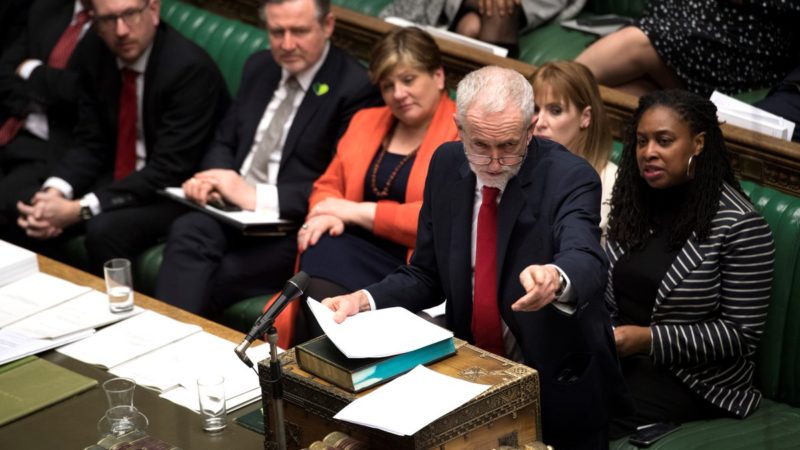
New analysis shows there was no significant ‘Brexit backlash’ in the local elections held across England last week, LabourList can reveal.
Data analysis conducted by Survation for the Labour Party reveals that Jeremy Corbyn’s party was slightly more likely to lose control of councils that had a higher Leave vote in 2016.
Councils won by Labour this year that were previously Conservative-held – of which there were two – voted over 55.4% to Leave on average, whereas councils that Labour lost to no-overall-control or to Tories voted around 62% Leave.
| 2019 local council election result | Average 2016 EU referendum Leave vote % | Number of councils |
| LAB GAIN FROM CON | 55.42 | 2 |
| LAB GAIN FROM NOC | 54.46 | 3 |
| LAB HOLD | 56.37 | 55 |
| LAB LOSE TO NOC | 60.93 | 10 |
| CON GAIN FROM LAB | 62.78 | 1 |
The Survation report states: “For every 1% higher the Leave vote was within a local authority in 2016, in 2019 Labour received 0.08% fewer votes within the local authority than in 2015.”
This shows that Labour experienced a decline in vote share in Leave areas – but the Brexit effect was not “major” according to the report, which all Labour MPs are expected to receive soon.
The report concludes: “In the 2019 local council elections, Labour experienced a marginally greater vote decline in local authorities where there was a higher leave vote in the 2016 EU referendum.
“On balance, there does not appear to have been a major Brexit backlash against Labour in Remain areas or in Leave areas.
“A range of other factors will significantly affect voting in local elections, regional elections, general elections, and European elections.”
The findings would suggest that Labour’s Brexit position of so-called ‘constructive ambiguity’ is not as harmful electorally as some MPs and commentators assume. “It suggests the current policy is about right,” a Labour insider said.
Those close to the leadership are likely to interpret this fresh analysis as evidence that Labour should not shift towards a more strongly anti-Brexit stance. Such a move is thought to put at risk Labour’s chance of winning marginal seats such as Bolsover and North East Derbyshire at the next elections – both areas where the party lost control last week.
In response to the report, critics of the Corbynite approach to Brexit may point to the YouGov research presented to Tom Watson’s Future Britain Group meeting on Wednesday. MPs in attendance were told that 18% of 2017 Labour voters would now opt for a Remain-supporting party in Westminster elections, while a lower figure of 9% would vote for a Leave-backing party.




More from LabourList
Letters to the Editor – week ending 15th February 2026
‘Labour council candidates – it’s tough, but all is not lost’
‘Labour won’t stop the far right by changing leaders — only by proving what the left can deliver’